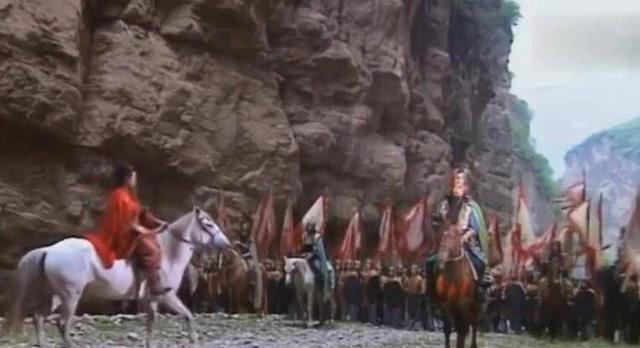The Battle of Huarong Dao was the most exciting part of the Chibi War. At that time, although Cao Cao rushed out of the encirclement circle set up by Liu Bei and Sun Quan, he also lost his troops and his combat effectiveness had reached its limit. When I walked to Huarong Road, I met Guan Yu. At that time, the situation was very clear, as long as Guan Yu gave an order, Cao Cao's side would definitely be completely destroyed, because it was really sleepy and lacking, and the soldiers could not even hold the knife.

However, Guan Yu chose to let Cao Cao go. This was a violation of military orders at the time and was to be beheaded. So, why did Guan Yu do this knowing that he would be beheaded? It is generally believed that Guan Yu is reading the old intelligence grace. Once, Guan Yu and Liu Bei were separated and defected to Cao Cao. Cao Cao did not think that Guan Yu had Liu Bei in mind, but was particularly kind to Guan Yu.
A small feast on three days and a big feast on five days is simply the rhythm of marrying Guan Yu as a brother. It's an individual who will be soft-hearted. Therefore, Guan Yu charged for Cao Cao, cut off Yan Liang and Wen Ugly, and lifted the siege of White Horse City. Although it is said that this is because Guan Yu's military ability is very anti-heavenly, behind it is Cao Cao's infinite trust in him.
Later, Guan Yu rode alone for thousands of miles, and Cao Cao sent a messenger to inform Guan Guan pass on the road that he must let Guan Yu, the pedestrian switch, and let Guan Yu be very grateful. Therefore, Guan Yu let Cao Cao go in Huarong Dao, indeed remembering his old feelings to repay his kindness.
In addition, Guan Yu's personality also determined that he would not kill Cao Cao. Guan Yu is a very arrogant person, in his opinion, he is a strong man, so he will not take advantage of the danger of others, only willing to divide the victory and defeat on the battlefield. At that time, Guan Yu had the advantage of waiting for labor, and Cao Cao was embarrassed. For this kind of suspenseless battle, Guan Yu was disdainful in his heart.
Xun Yu commented on Guan Yu and said that Guan Yu was a bully who was not weak. That is to say, Guan Yu prefers to challenge the strong rather than bully the weak. Therefore, if Cao Cao was a heyday army at that time, then Guan Yu would definitely go all out to attack. However, at that time, Cao Cao escaped from the Chibi front, and he was already trapped and lacking in combat, so Guan Yu was also doomed not to kill Cao Cao and would definitely let him go.
But more importantly, Guan Yu also understood the situation at that time, that is, once Cao Cao was killed, his old troops in the north would definitely fight with the enemy and take Liu Bei's side to vent. And Liu Bei's strength was so weak, how could he possibly resist the counterattack of the northern forces? Besides, Sun Quan was also looking at the tiger, thinking that once Cao Cao died in the north to avoid chaos, then he could send troops north to attack the city, so that he could dominate the world and establish an emperor.
In contrast, Liu Bei will lose the hope of the Zhongxing Han Room forever. Thinking of this layer of meaning, Guan Yu naturally let Cao Cao go softly. Of course, perhaps Guan Yu hadn't thought about such a deep-seated thing, but Zhuge Liang only pointed this out when he explained it to Liu Bei afterwards. Therefore, Zhuge Liangming knew that Huarong Dao was the last line of defense, and he also knew that Guan Yu wanted to repay the favor with his old feelings, and his character would not bully the weak, so he sent Guan Yu to Huarong Dao to guard the town.
Perhaps what Zhuge Liang was thinking at that time was to borrow Guan Yu's hand to let Cao Cao go, and create possibilities for Liu Bei's grand goal of dividing the world into one, rather than just to get rid of Cao Cao, a Han thief. Therefore, all parties coincidentally made a mistake, Guan Yu let Cao Cao go, and afterwards Zhuge Liang did not execute Guan Yu, which shows that Liu Bei Zhuge Liang did not want Cao Cao to be killed in his heart.